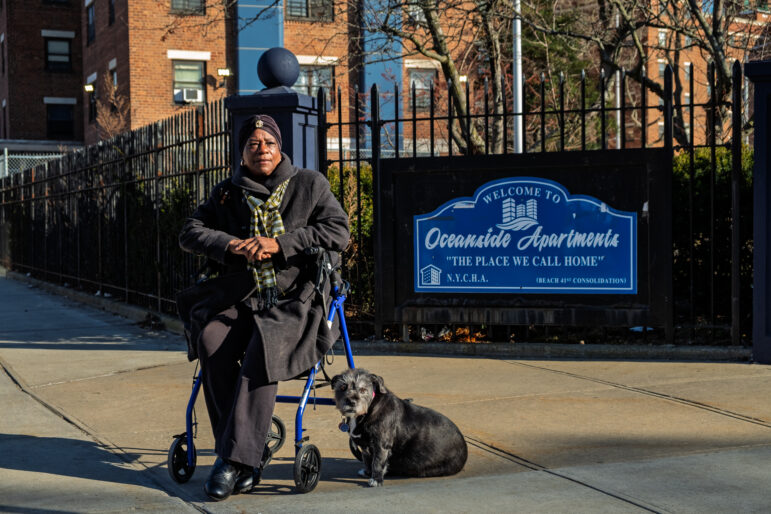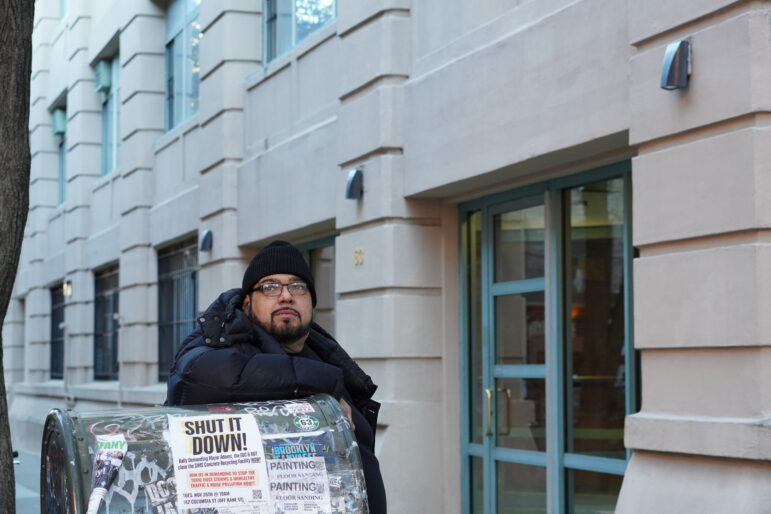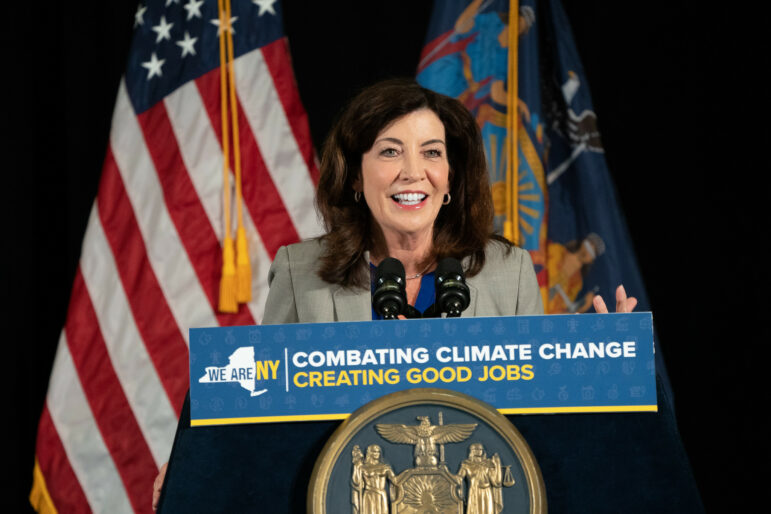“Roy Wilkins Park is not just any park; it’s the only Black-led public park in New York City, a legacy that dates back to the 1970s when our community organized and marched to ensure that Roy Wilkins Park would remain under local control.”
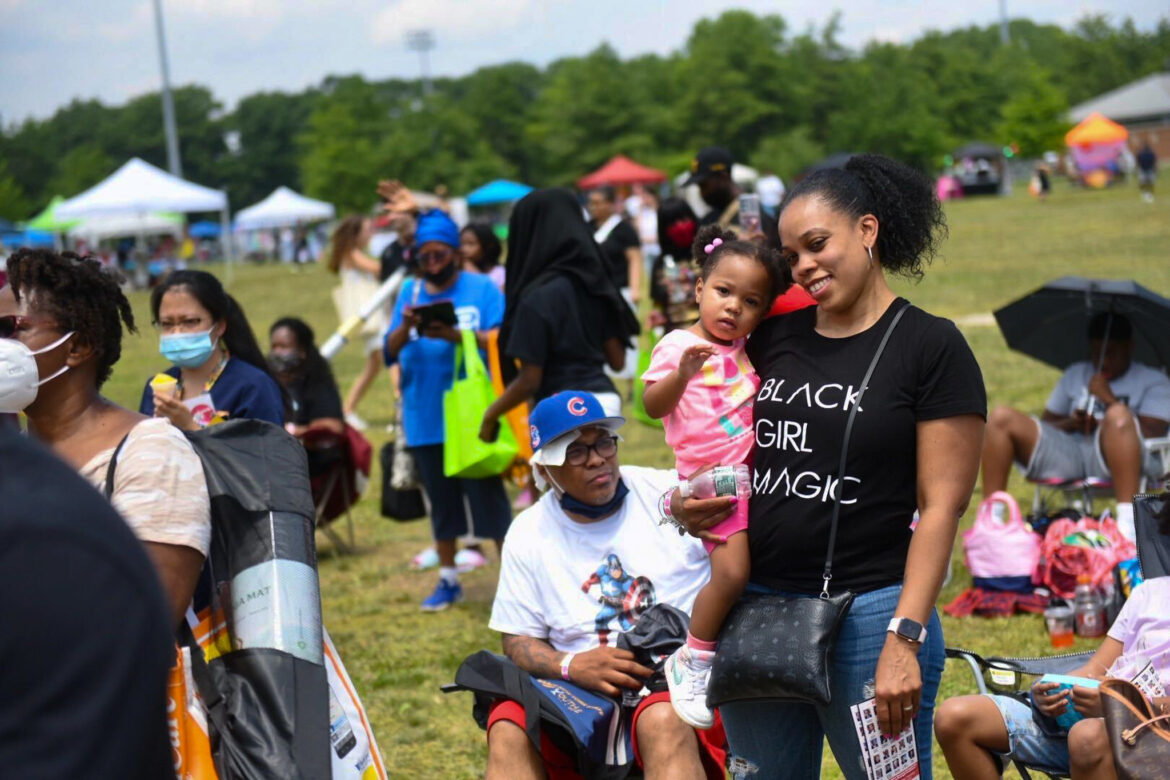
Michael Appleton/Mayoral Photography Office
A Juneteeth celebration at Roy Wilkins Park in 2021.Last week a town hall was organized by community members expressing outrage at the Parks Department, as duly elected officials we have penned this op-ed to explain more on the history and significance of Southern Queens Parks Association (SQPA) and Roy Wilkins to the larger Southeast Queens community, and publicly express our support of the community’s wishes.
When Roy Wilkins Park was established, it was more than just another public space; it was a promise to the Black community of Southeast Queens—a promise of self-determination, representation, and a dedicated space where culture, history, and community could thrive. In the 1970s, with the backdrop of the civil rights movement, this Black community organized, protested and fought hard to create that space from the federal land it once was with the vision of a community-led green space.
For decades, the Southern Queens Park Association (SQPA) has fulfilled this promise, offering programs and services reflective of our community’s unique identity and needs. But today, this promise is in danger as NYC Parks attempts to take full control of all aspects of the park, undermining community input and risking the displacement of local management.
The issue escalated in 2021 when former Council Member I. Daneek Miller secured $1 million in annual funding, tripling SQPA’s maintenance budget, so that NYC Parks could assume Roy Wilkins Park’s management. This funding was intended to bolster SQPA’s role, not replace it, allowing them to continue their stewardship while outsourcing the maintenance of the park to the City of New York. Yet since 2022, NYC Parks has moved to restrict SQPA’s access, blocking community programs and events while sidelining SQPA’s historical role as founder and preserver of the park.
This past summer illustrated the impact of these actions on our community’s children. SQPA’s campers were forced to remain indoors due to a lack of permits, unable to access the park’s grounds, including the pool. For families and children who rely on Roy Wilkins Park as a safe, enriching environment, NYC Parks’ approach to marginalize SQPA feels like a betrayal of our trust. It disregards the historical significance of SQPA’s role and threatens to erase decades of community-driven management.
Roy Wilkins Park is not just any park; it’s the only Black-led public park in New York City, a legacy that dates back to the 1970s when our community organized and marched to ensure that Roy Wilkins Park would remain under local control. This fight is part of our history, symbolizing our community’s determination to maintain spaces that reflect our culture, meet our needs, and are accountable to us. It’s a history that NYC Parks appears ready to overlook in its push to centralize management, jeopardizing everything SQPA has built.
At the heart of this issue is the Parks Department’s refusal to support a sole concession agreement that would protect SQPA’s unique stewardship rights as the founder of this green space. This agreement would guarantee SQPA the autonomy to continue providing services specific to the community, free from the bureaucratic obstacles that now threaten to stifle their work. Instead, NYC Parks has offered only a restrictive agreement that could see SQPA pushed out entirely, with no path to reclaim their leadership role in the park. This not only impacts programming but could also introduce higher fees and limited access, making the park less inclusive for those who need it most.
NYC Parks is not a perfect property manager either; struggling to manage the property just like anyone would with limited resources. Recently the heating at the Recreation Center broke down yet again, causing students and adults to exercise in coats under exposed ceilings awaiting extensive repair work. NYC Parks must acknowledge that they are no more qualified to steward this park than the community organization that founded it. City governance does not mean better governance.
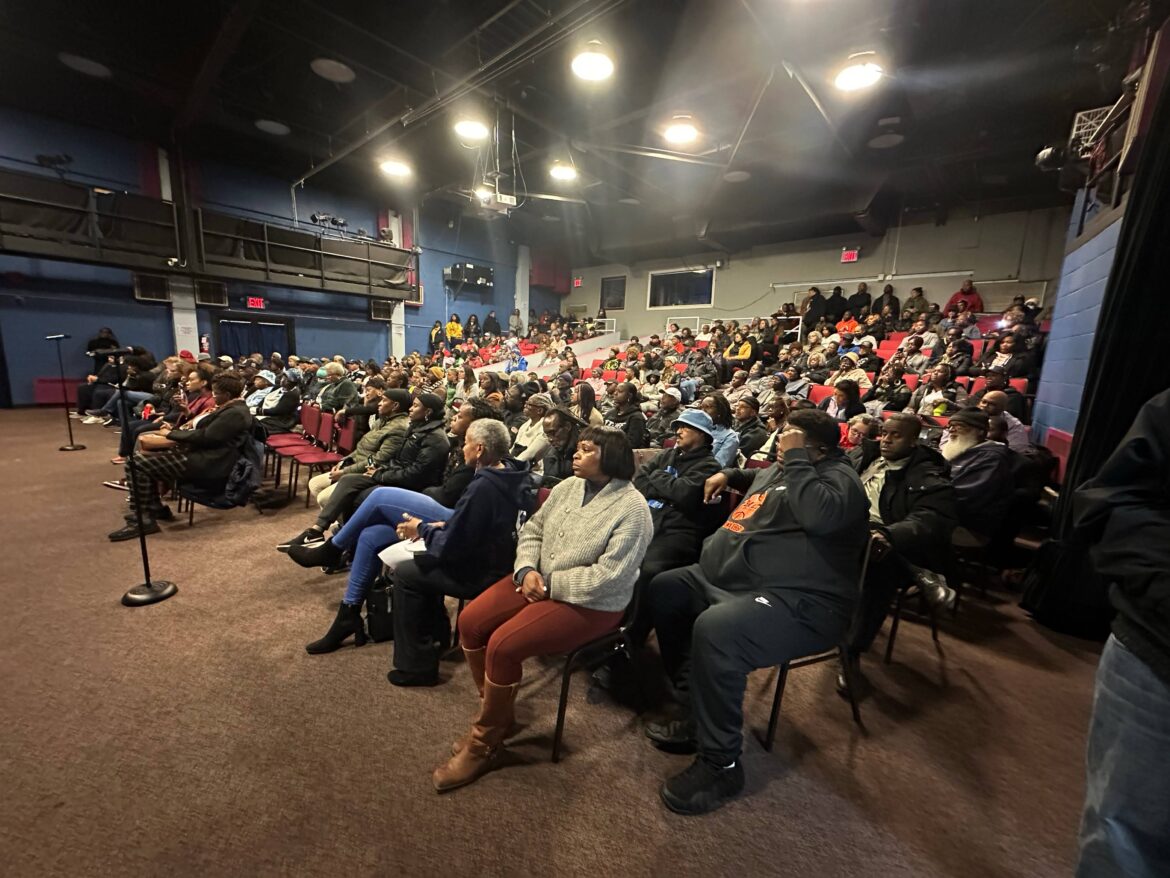
Councilmember Dr. Nantasha Williams’ Office
A community townhall meeting at the Roy Wilkins Park Recreation Center last week.This situation is bigger than one organization or one park. It’s about honoring the legacy of our predecessors who fought to create this property and Solomon Goodrich, who envisioned Roy Wilkins Park as a sanctuary for our community. His vision led to the formation of SQPA, which for decades has upheld the park’s mission to serve Southeast Queens. Allowing NYC Parks to sideline SQPA without community consent is not just undemocratic; it disregards the cultural significance of Roy Wilkins Park as a space by and for Black New Yorkers.
We need NYC Parks to respect this heritage and negotiate in good faith. The Southeast Queens community demands a fair license agreement that maintains SQPA’s right to operate in Roy Wilkins Park. We are not asking for favors; we are demanding that the community’s voice be heard and respected. Roy Wilkins Park belongs to the people of Southeast Queens, and it must remain under community control to preserve its identity, accessibility, and purpose.
We stand with the Southern Queens Park Association and the residents of Southeast Queens in the fight to protect our park. This issue transcends any single organization or administration. It’s a matter of community autonomy, equity, and preserving the character of our neighborhoods. NYC Parks must recognize that Roy Wilkins Park is more than land and trees; it’s a living testament to the strength and resilience of the people it was created to serve.
Now, we need NYC Parks to take real steps toward securing a license agreement that guarantees SQPA’s stewardship and protects the park’s legacy. We will not stand by and watch as a pillar of our community is swept away by bureaucracy and neglect. Together, we must continue to honor the vision of Solomon Goodrich and our forefathers to ensure that Roy Wilkins Park remains a space for community, culture, and connection for generations to come.
Dr. Nantasha Williams is a member of the NYC Council representing Council District 27 in Southeast Queens. Jumaane Williams is the NYC Public Advocate. Leroy Comrie is a New York State Senator representing the 14th Senate District. Alicia Hyndman is a member of the New York State Assembly representing the 29th Assembly District. I. Daneek Miller is the former NYC Council member for the 27th District.


